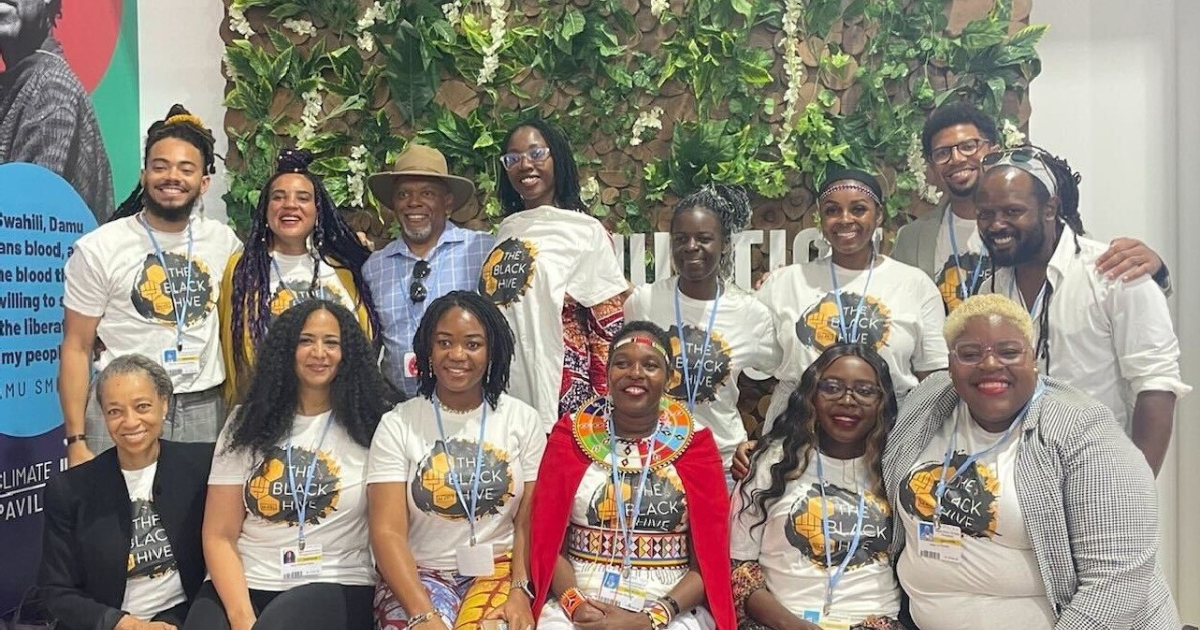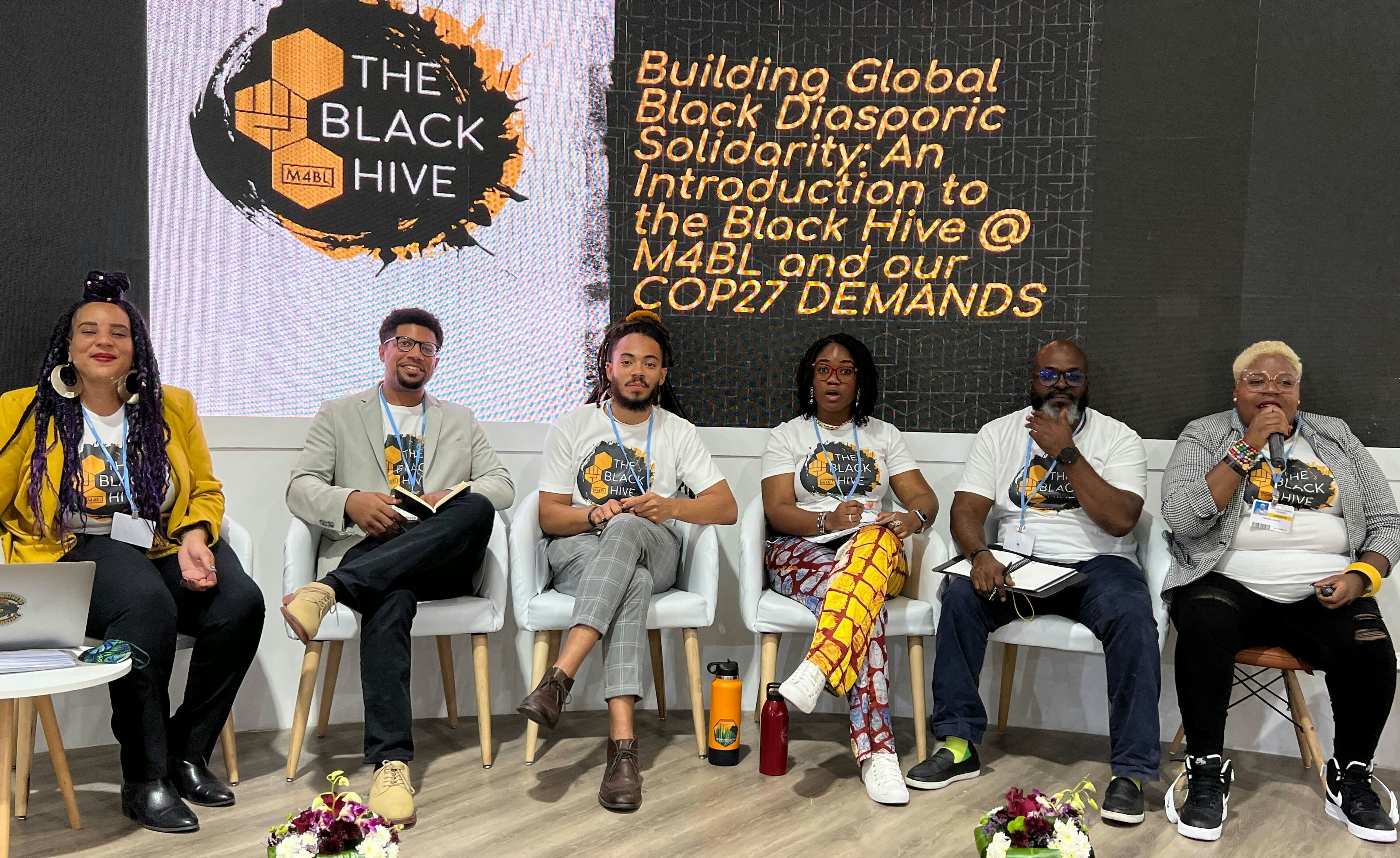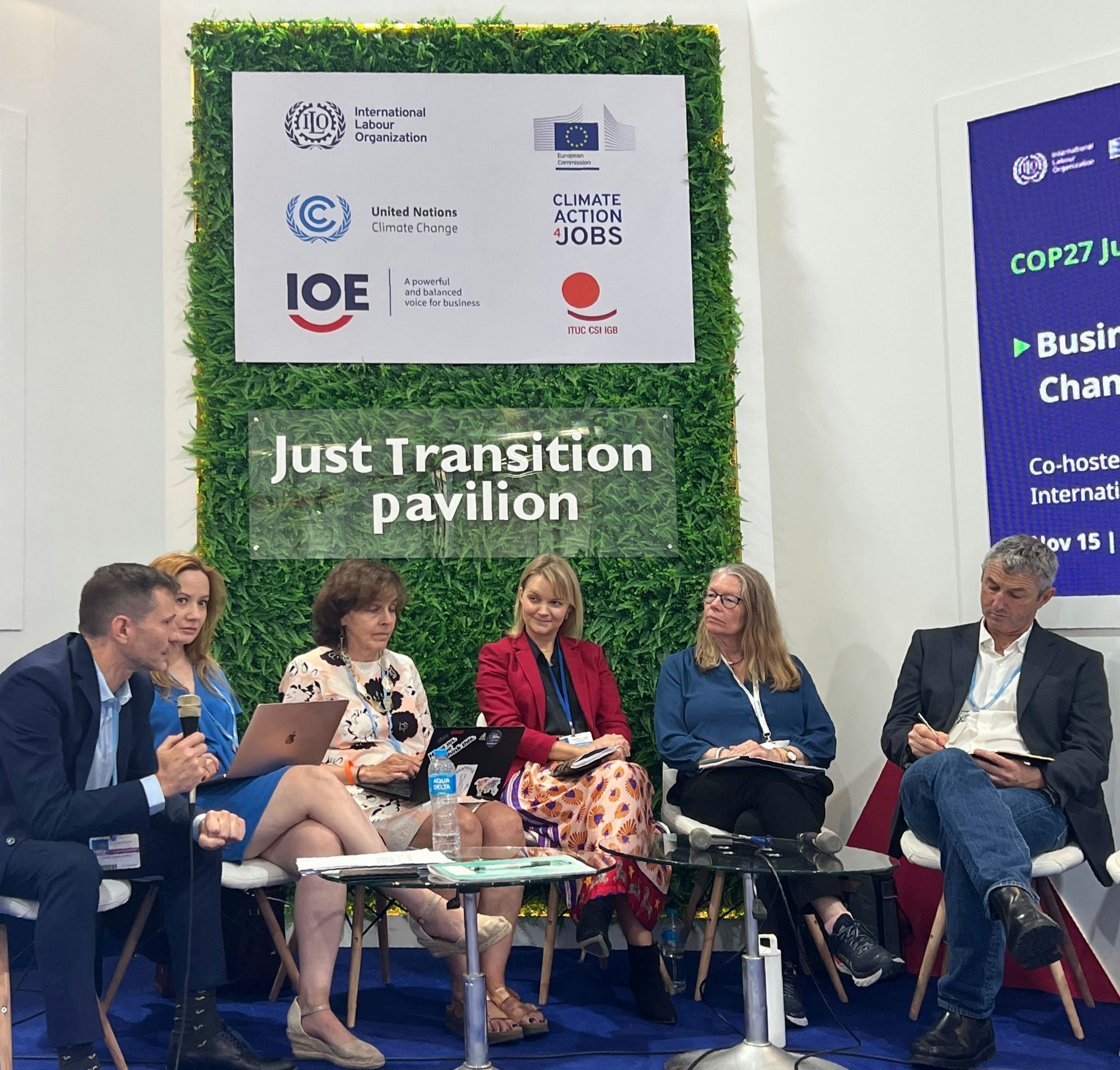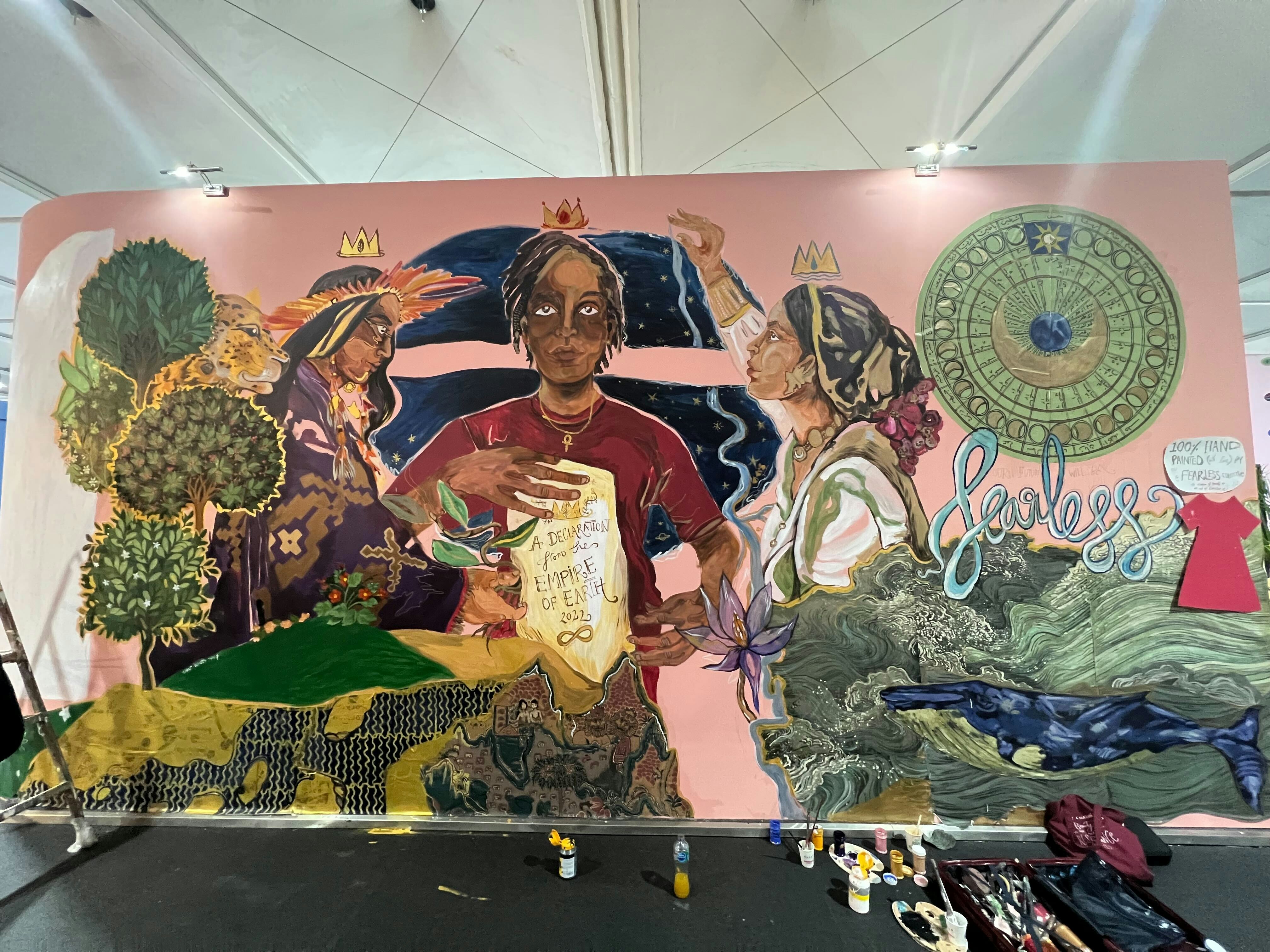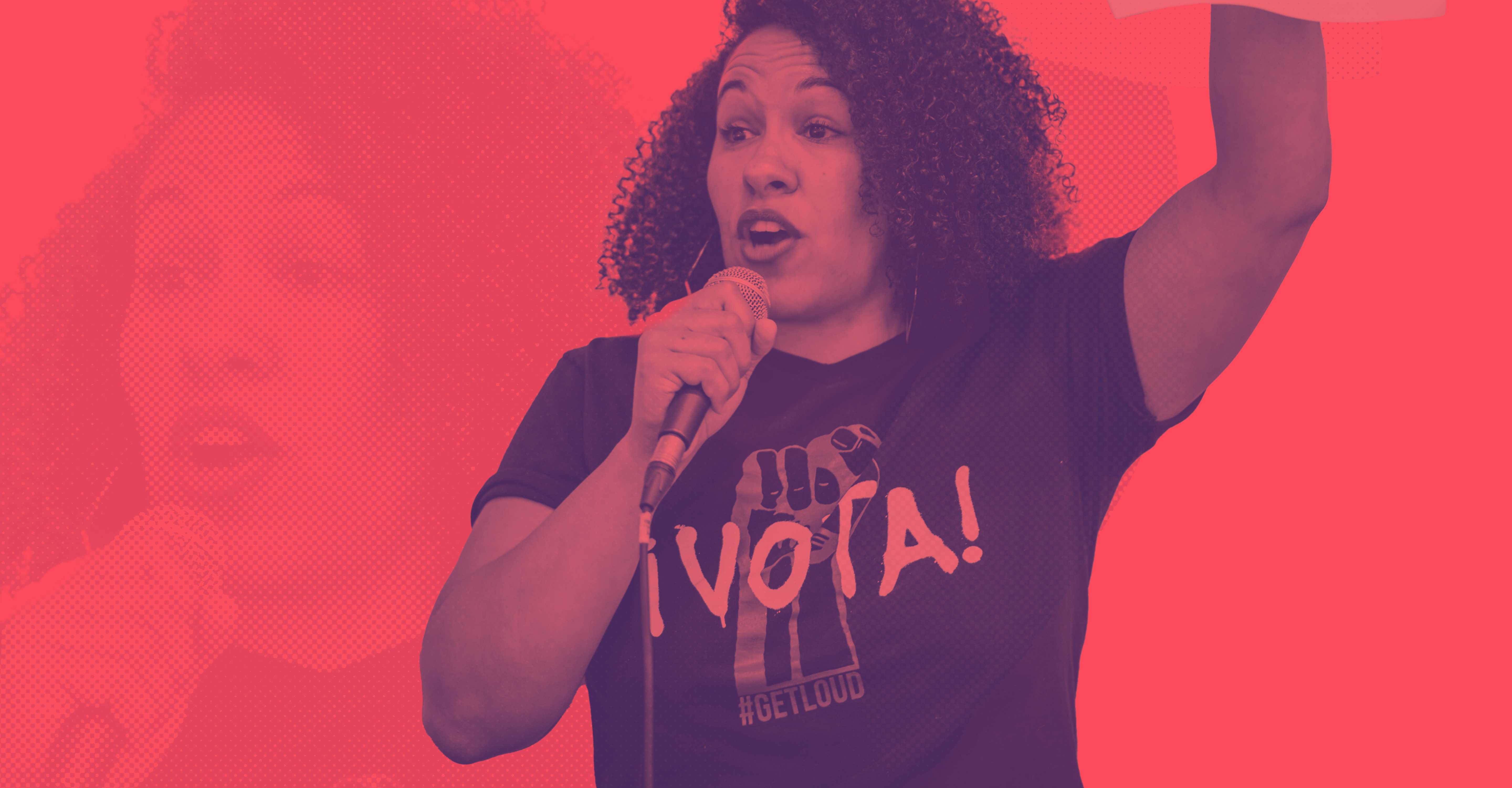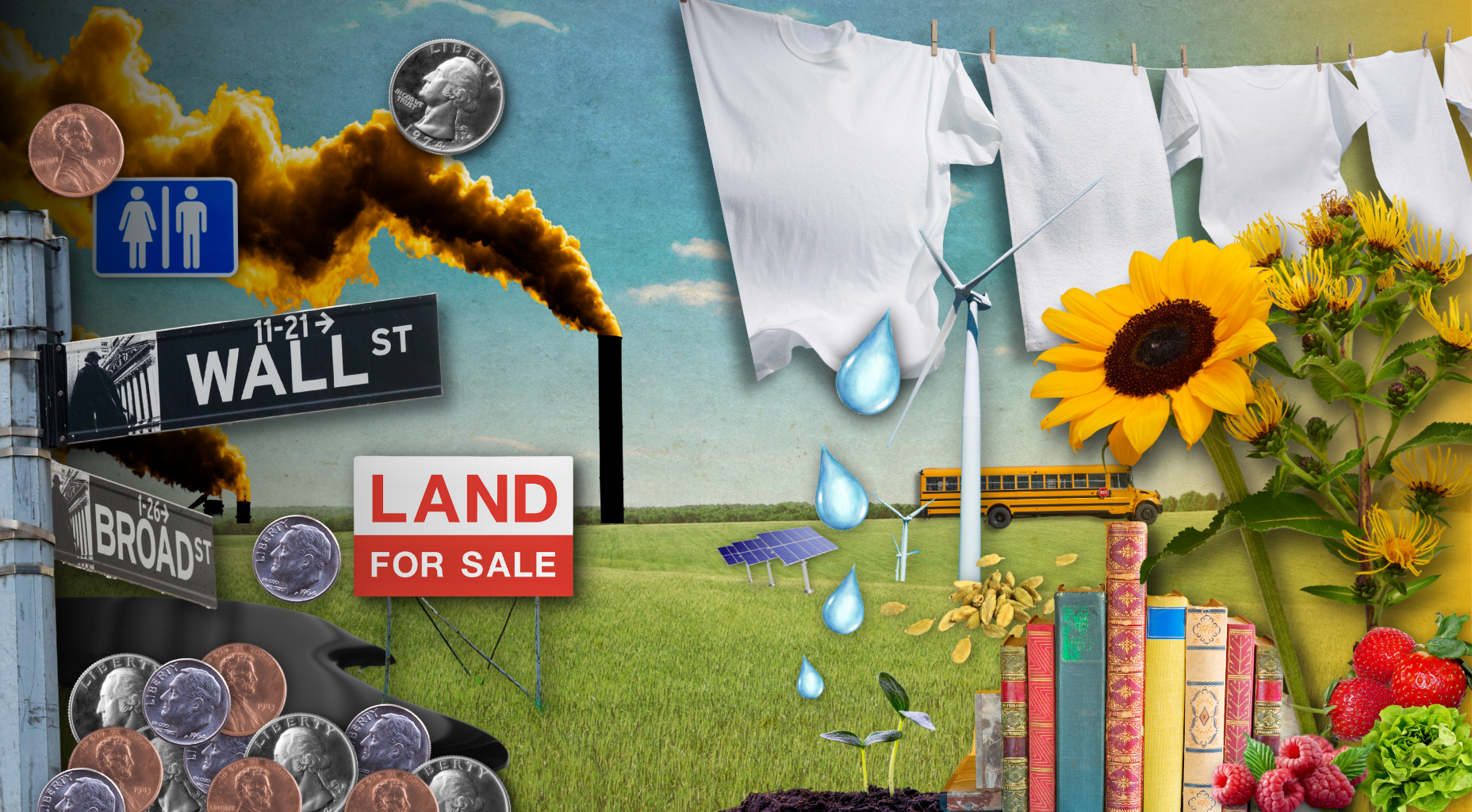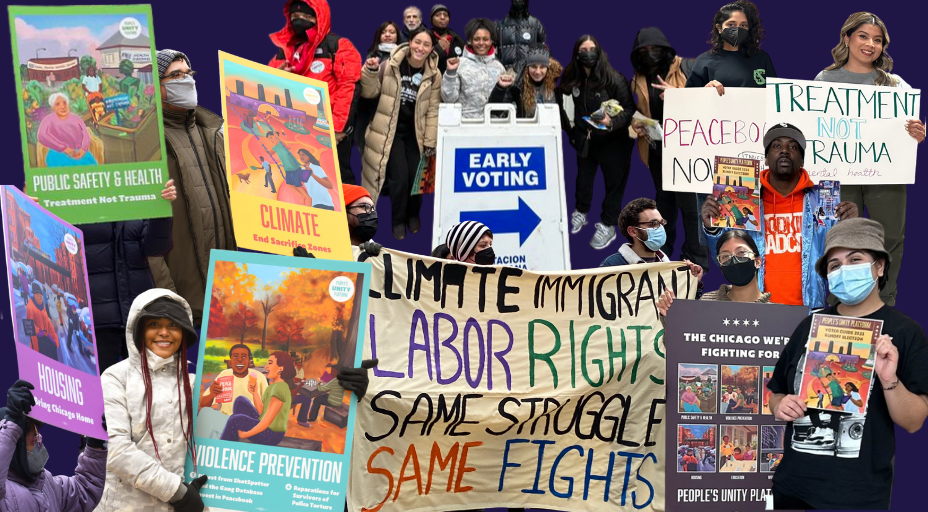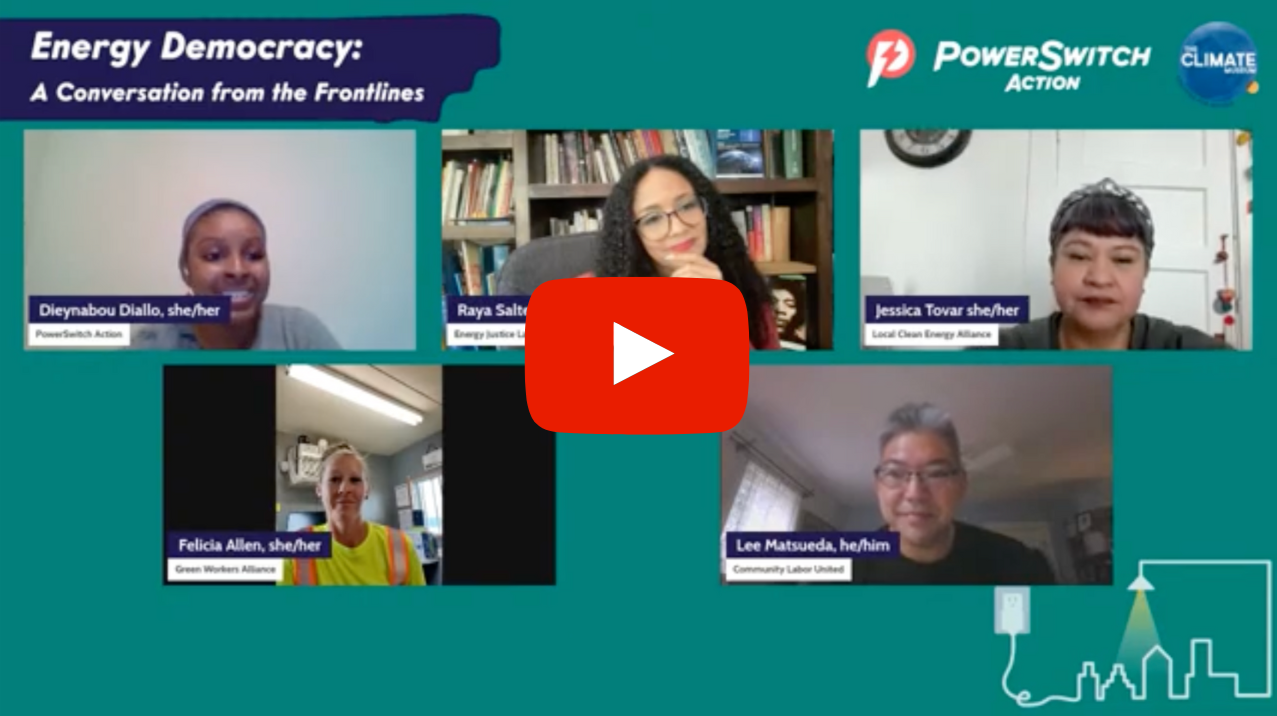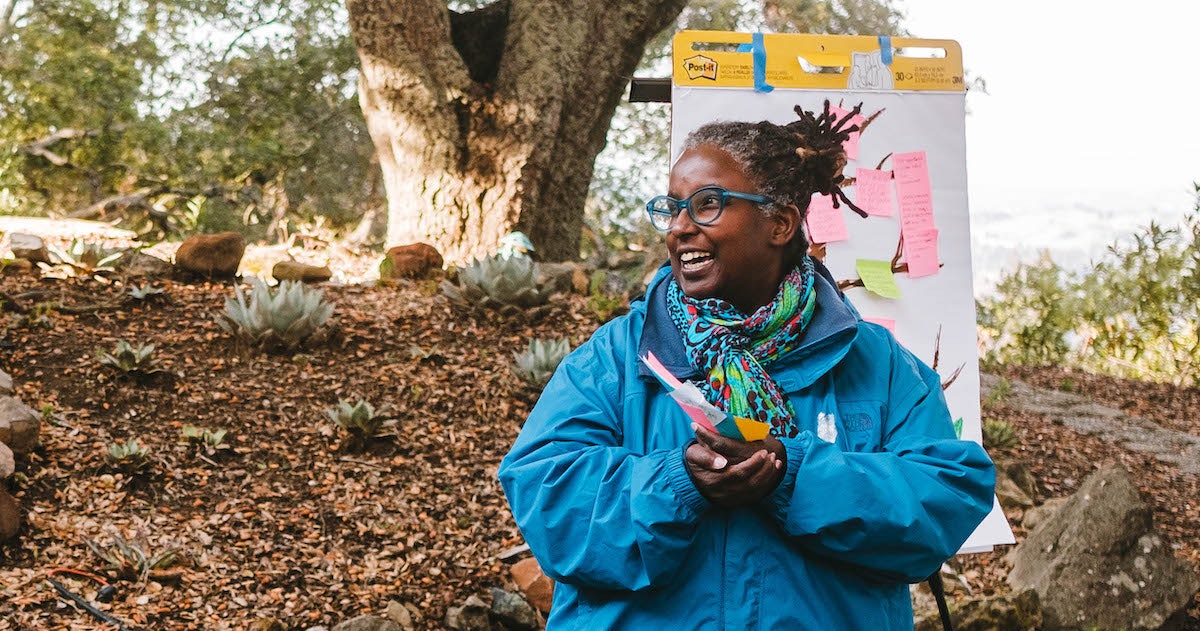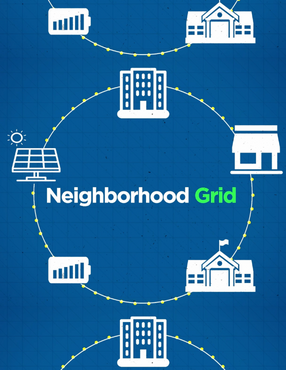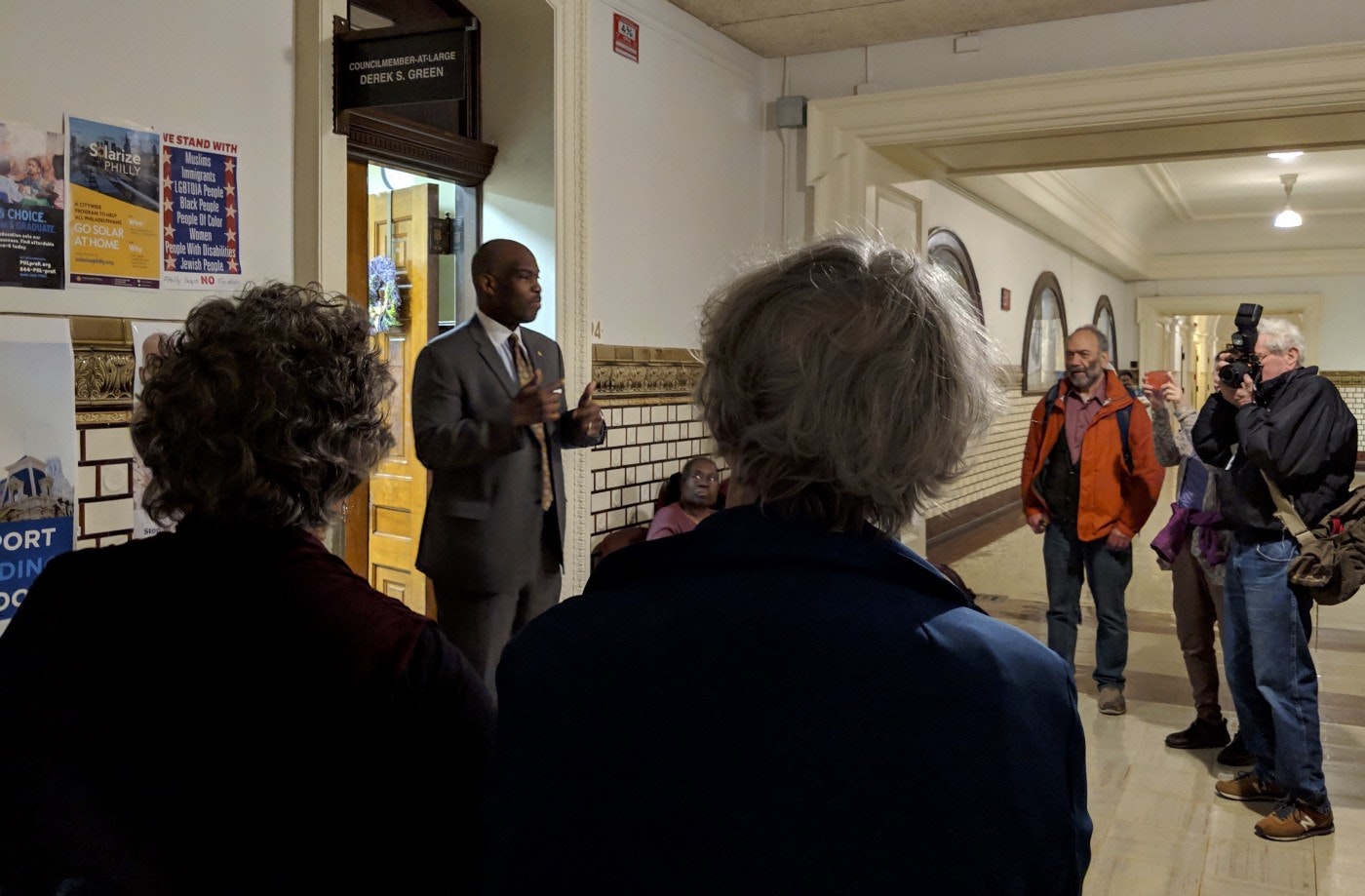By Dieynabou Diallo, Climate Justice Lead
Last month I joined the Movement for Black Lives's Black Hive in Egypt for COP27, an international climate change conference where government officials from around the world discuss climate action commitments and progress. I attended COP with the cautious optimism that I would learn more about exciting and transformational climate action happening around the world, but I left feeling a bit let down. Here’s why.
It’s been 30 years since the launch of the UN Framework Convention on Climate Change, in which nations recognize that humans are causing climate change and that action needs to be taken to prevent climate catastrophe. This year, the best that world nations could come up with at the end of COP27 was a vague commitment to launch a “loss and damage” fund. This comes after the UN Intergovernmental Panel on Climate Change announced that we have roughly 10 years left to avert a full on, irreversible climate catastrophe. We need actions that reduce greenhouse gas emissions and invest in adaptive technologies and solutions that meet the conditions of our new climate reality. But year after year, these conferences fail to produce genuine and serious nation state commitments.
The most rewarding part of the trip was meeting and collaborating with other climate justice activists and thought leaders. I met environmental defenders from Nigeria who are fighting against big oil corporations in the Niger Delta. I attended trainings led by the It Takes Roots coalition, a multiracial effort led by women and gender oppressed people of color and Indigenous peoples on the frontlines of racial, housing and climate justice across the country. And I helped facilitate a session led by the Black Hive on Building Global Black Diasporic Solidarity where we shared our COP27 demands. However, my experience at COP27 affirmed my belief that we need climate justice to lead us out of the climate crisis. That is to say, we cannot solely focus on reducing greenhouse gas emissions, but we must center the liberation of Black people and racial, economic, and gender justice, if we are to win permanent and transformative climate solutions. That means championing solutions that come from the grassroots level, from communities most impacted by climate change.
Here are three steps that we must take to achieve climate justice:
Organizing locally
Like any UN body, COP is focused on creating international agreements. Although this is a necessary approach, cities are key to confronting the climate crisis for a number of reasons, and they are also a foundational part of PowerSwitch Action’s organizing model. Cities house more than half of the world's population and are responsible for over 70% of the world's carbon emissions. But it is also at the city level that grassroots solutions and activism thrive. Our work is rooted in cities for this reason.
Across the world, cities are experimenting and implementing solutions where national governments are falling short. In US cities like New York, Milwaukee, and Chicago, local governments are implementing policies to reduce greenhouse gas emissions by electrifying tractor trailer trucks, decarbonizing commercial and residential buildings, and switching to renewable energy.
As these policies are being developed, passed, and implemented, climate and environmental justice groups are holding elected officials accountable to ensure that these climate policies are just and equitable, deliver benefits directly to harmed communities and workers, and keep their promise of mitigating climate change.
For example in Milwaukee, our affiliate Citizen Action of Wisconsin organized with coalition partners to win a historic resolution that will decarbonize public school buildings. This resolution not only reduces greenhouse gas emissions but it will address racial inequities in the city including creating new green jobs accessible to people of color, low income, women, and other marginalized communities.
Aligning with labor
This year, for the first time ever, COP featured a Just Transition pavilion, a convening space for events, meetings and knowledge-sharing around just transition and climate action. This is a big step in terms of connecting climate solutions to labor issues. Yet the conversation failed to feature any worker voices. Instead the focus was on corporations and how they can benefit from a green economy.
Climate solutions must center workers if we want long-term, transformational change. This was a missing piece at COP27. A truly Just Transition must be worker- and community-led if it is to produce the results we want: thriving economies that provide dignified, productive and ecologically sustainable livelihoods; democratic governance; and ecological resilience.
In New York, our affiliate ALIGN is part of the NYRenews coalition, where they are leading on what it means to have a Just Transition. The coalition is made up of labor unions, community groups, environmental organizations, faith communities, and environmental justice advocates. Together they are fighting for the Climate, Jobs & Justice Package: a $15 billion roadmap to rapidly decarbonize New York, make the state healthier and more equitable, ensure a just transition for workers, and help create an accessible green economy for all.
Working across crises
One of the more exciting parts of my COP experience was a panel discussion on housing and the climate crisis. Although the panel did not lift up the solutions that grassroots groups have long developed, it affirmed that we need to tackle intersecting problems while we fight climate change.
We know that the climate crisis disproportionately impacts low-income folks, immigrants, and communities of color—groups who are already confronting interlocking systems of oppression and crises like public health, housing, job insecurity, and more. When natural disasters and unpredictable weather patterns caused by climate change occur, these groups are most often left without disaster relief, without electricity, running water, or heat, and with a more difficult path to recovery.
As the climate crisis worsens and we face more floods, hurricanes, heatwaves, and droughts, frontline communities will bear the brunt of these disasters. Therefore, it is imperative that our climate justice work includes pushing for solutions that address affordable housing, energy access, and immigration.
Take our affiliate Puget Sound Sage, who is part of the Seattle Green New Deal Oversight Board. The board recently passed a budget that allocates funding for decarbonization, affordable housing projects, resilience hubs, and a community health data project.
Although the time to take action and prevent climate change has long passed, there is still time to avert climate catastrophe. Conferences like COP27 help to shed light on the severity of climate change and connect researchers and activists across the globe, but we must look to grassroots communities and organizations for their practices, solutions, and leadership around climate justice.
